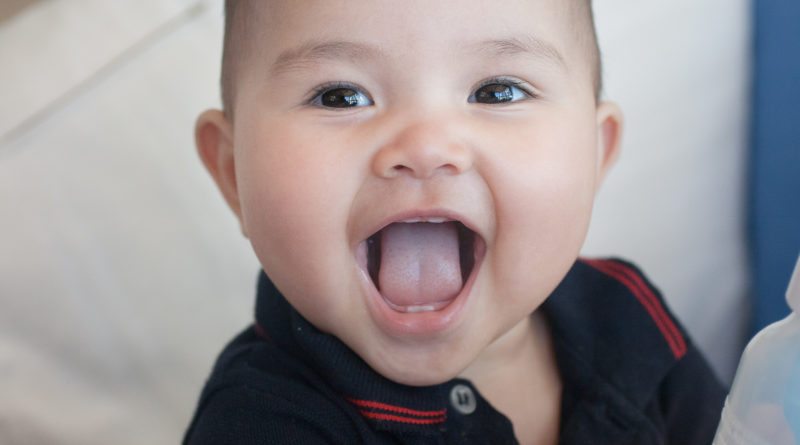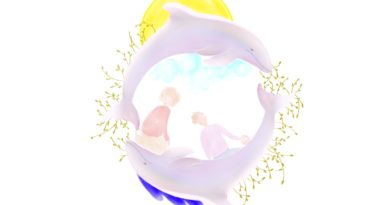Breastfeeding and the Environment
Breastfeeding can be a source of different emotions: of pleasure and great happiness, but also discomfort, worry, and controversy. Your baby has arrived; you are filled with joy, and even relief. It is a beautiful moment, filled with light. Your baby is beautiful, but you don’t really know if all is well. For nine months your body has nurtured your baby, so it is only natural for your body to continue nurturing even after birth. After all, breastfeeding has been our means of survival from the beginning of creation.
Many mothers continue to breastfeed while working, not just for their babies’ health, but also because breastfeeding is good for the whole family, the community, and the world.
Breastmilk and the world of commerce
Many mothers across the globe are lured away from breastfeeding by the so-called “easy” way of feeding their babies with a manufactured substitute. It is interesting to note that the UNHCR (the UN High Commission for Refugees) advocates breastfeeding in refugee and conflict situations. Breastmilk is sustainable and safe, whereas formula supplies can suddenly stop. Formula also requires safe water, clean bottles or cups, and energy for heating, which are often lacking in conflict and refugee areas.
In many refugee situations all over the world, HIV/AIDs has attacked young mothers and caused them to die. Grandmothers are then encouraged to save their grandchildren through relactation. Relactation is the process by which a mother can re-establish lactation after having stopped for some time (weeks, months, even years). This is a life-saving action.
Breastfeeding bestows benefits on the environment.
Manufacturing and transport costs, the energy required to heat up formula, washing and disinfecting bottles, etc. all burden the environment. Breastfeeding bypasses all of these and can also put a stop to the costs of rubbish elimination. The whole issue of industrial infant milk production is an environmental issue for our fragile planet. Furthermore, it is a poor substitute for the real thing.
Health professionals in many hospitals are concerned with babies gaining sufficient weight in the first week. They feel that weight loss after birth must be rectified quickly and therefore advise giving newborns bottles with formula. Instead, the mother should be encouraged to put her baby more often to the breast, to relax and enjoy the experience, and to understand the possible dangers of her baby receiving something other than breastmilk.
Every breastfed baby cuts down on the pollution of production and waste disposal problems. In addition, research shows that exclusive breastfeeding can help to naturally space pregnancies. Although we live in a polluted world, scientists agree that human milk is still the very best food to nourish human babies, and it can protect them from the effects of pollution and illness, even COVID.
Breastfeeding is favourable to communities.
Breastfeeding reduces financial pressure on families and communities. In addition to human milk being essentially free, it also lowers family health care costs. Studies of mothers and infants receiving governmental assistance show that there are huge savings for families depending on the length of time the babies breastfeed.
When low-income mothers breastfeed, community resources for those in need can be stretched further. Also, breastfed babies ensure that both mother and baby are healthier throughout their lives. Breastfeeding improves public health and reduces the financial burden on hospitals, insurance companies, and community and governmental assistance programs.
Malnutrition
Statistics show that every country in the world is affected by some form of malnutrition, one of the greatest global health challenges. Women and babies are at particular risk of malnutrition, which can have a profound effect on the entire life of the child, the mother’s health, and even the whole world.
Many governments fail to carry out legislation on the aggressive marketing of breastmilk substitutes, which undermines breastfeeding and provides misleading information to parents and health professionals.
Colostrum, the first milk produced during pregnancy, is a concentrated form of nutrition, suited to a newborn’s need for protection from infection. The risk of acute gastrointestinal illness in infants receiving formula is far greater than for breastfed infants. The early stimulation of the babies’ own immune systems can have far reaching effects on protecting them from disease in later life. The resistance to disease provided by human milk to babies cannot be duplicated in any other way.
Breastfeeding can lay down the optimal foundation for life and for our current and future happiness. Breastmilk is the greatest gift mothers can ever give their babies. And it contributes to protecting our environment!
By Joanna Koch
Joanna has been a La Leche League advisor since the early 1990s and involved in Mothering Matters (now Family Matters Switzerland) since its inception, helping mothers, fathers and families over many years. Joanna has three children and eight wonderful grandchildren. Check out www.lalecheleague.ch, where there is expert and well-researched information on breastfeeding. Feel free to give one of the LLL leaders a call or send an email.
Photo by Cloudia Chen
Cloudia is a portrait photographer specializing in family and children’s portraits, as well as Swiss CV, business headshot and event photography. Before settling in Zurich, she lived in Mainland China, Hong Kong, London and the South of France. Her photos and articles have been published in various social media and popular travel magazines in China. To contact her please visit her website www.cloudiachen.com.



